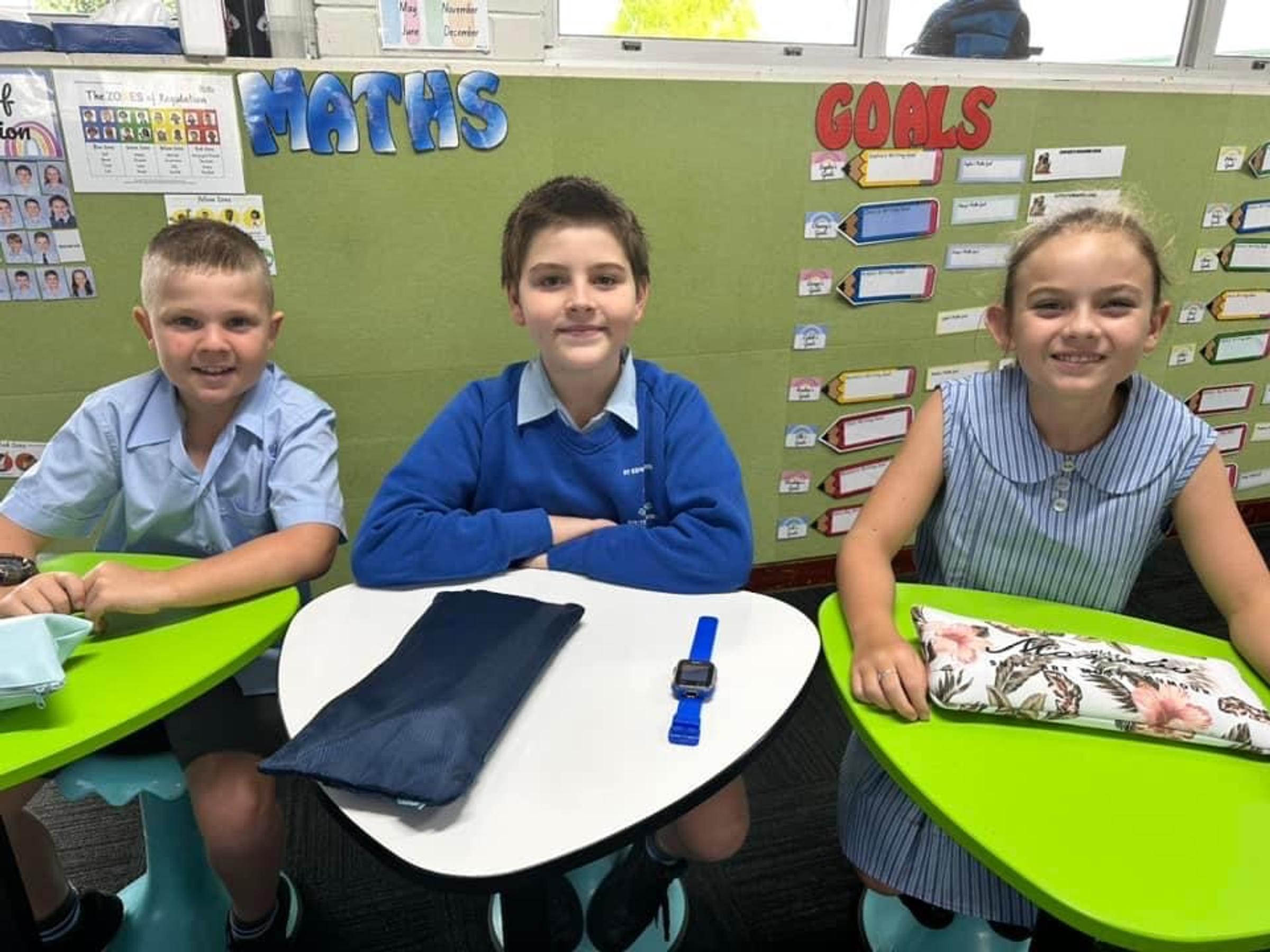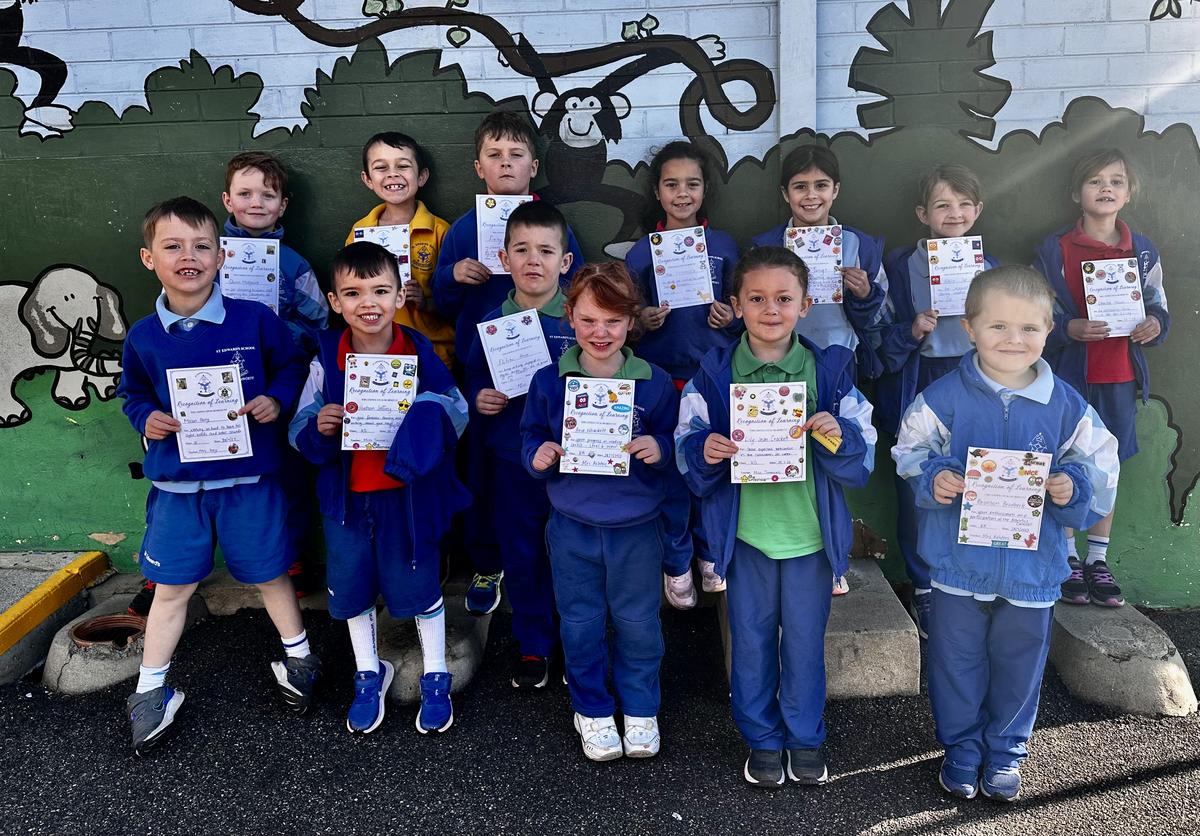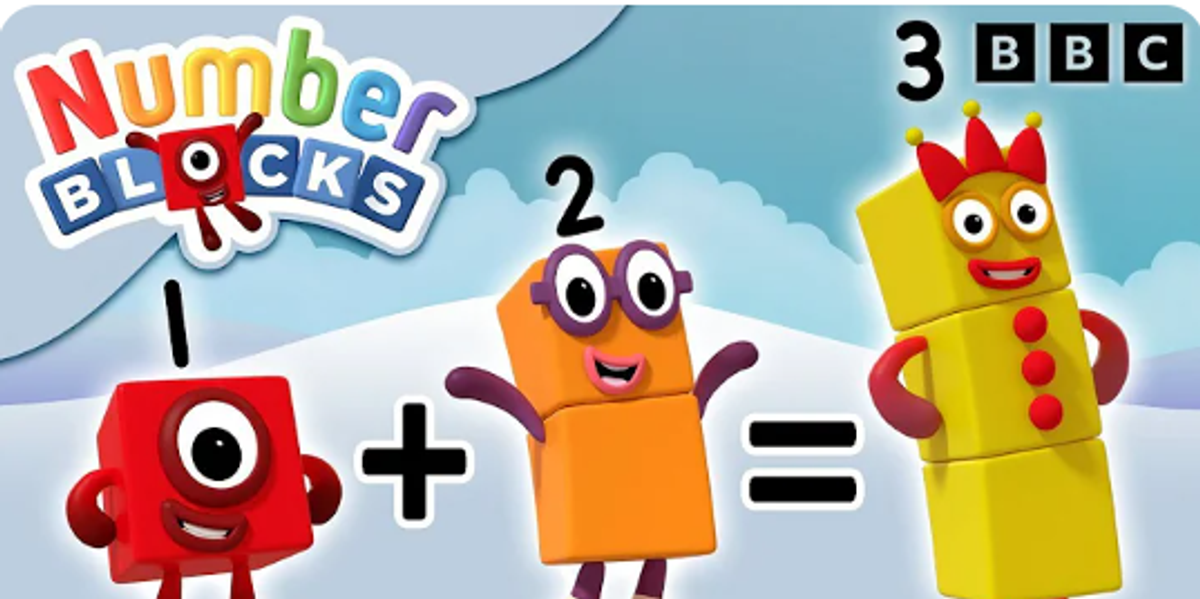
Learning Gallery
Recognition of Learning Awards
Congratulations to the following students for their wonderful efforts in class last week. All of the staff at St Edward's are very proud of your contribution to our school.
Infants Award Recipients - Friday 28th July
| Class | Student Names |
|---|---|
| KA | Bronson Brodbeck & Aria Whackett |
| KP | No Award |
| KS | Hudson Jeffrey & Lily-Jean Crockett |
| 1C | Amberley Anderson & |
| 1E | Mason Parry & Quinn Madgwick |
| 1H | Sophia Davis & Kiana Tongs |
| 1L | Finley Bark & Fletcher House |
| 2C | Nevaeh Scanlon & Noah Wood |
| 2H | Charlee Mason & Mia Fieramosca |
| 2W | Orlando Hoogendorp & Nikola Coe |
Maths: Tips for Parents
To support students in consolidating their understanding of mathematics, we would like to share some tips for parents in our newsletter. These tips may be useful in supporting your child at home with some of the learning that is happening at school during their mathematics lessons.
Early Stage 1 students are completing a unit on Combining and Separating Quantities: Addition. You could help your Kindergarten child at home by:
- playing adding board games such as Snakes and Ladders
- using everyday materials to model addition. For example, start with 5 spoons from the cutlery drawer, now add 4 more spoons. How many are there altogether?
- Encourage your child to help you when out shopping by counting and collecting objects to put into the basket, e.g. ‘Can you get 2 apples? (add more) How many do we have altogether?’
- When playing with building bricks or small toys, encourage your child to count how many of each colour or size.
- Play simple board games and encourage your child to count the spots shown on the dice and the number of spaces to move.
- Sing number-themed counting rhymes and use your fingers or small props to help count the items, e.g. 10 Green Bottles.
- Watch Number Blocks with your child and discuss the concepts. Each episode has been carefully crafted with the help of the NCETM (National Centre for Excellence in the Teaching of Mathematics) and it helps children to see how numbers really work − and master a new key math skill with every adventure.
Stage 1 students are completing a unit on Forming Groups: Multiplication. Forming groups focuses on using groups to solve multiplication problems. You could help your Year 1 or Year 2 child at home by:
- playing skip counting games or taking turns to count by 2s, 3s, 5s, and 10s
- using 5c, 10c or $2 coins to skip count money
- drawing a skip counting hopscotch path with chalk. Use the hopscotch path in reverse to skip count backwards.
- using sticky dots, textas, M&Ms, playdough or Lego to make groups and getting children to write the repeated addition facts to match.
- use paddle pop sticks to create groups and add them together to multiply and find your answer.
- try a 100s chart and colour in the numbers as you add on top of them to find the answer to your question. Can they find any patterns?
- Arrays are a grid-like pattern. Explore around you and find arrays! It could be a bookshelf, the kitchen drawers or the plates laid at the dinner table. Work out what these arrays are (their rows and columns) and their answer if they were multiplied.
- A fun way to show arrays is to bake some muffins or cookies and multiply the rows and columns to work out how many you will make.
- Make arrays with items around the house. Challenge yourselves to see who can make the arrays in the fastest time!
Stage 2 students are completing their unit on Division. Here are four easy ways to practise division at home.


